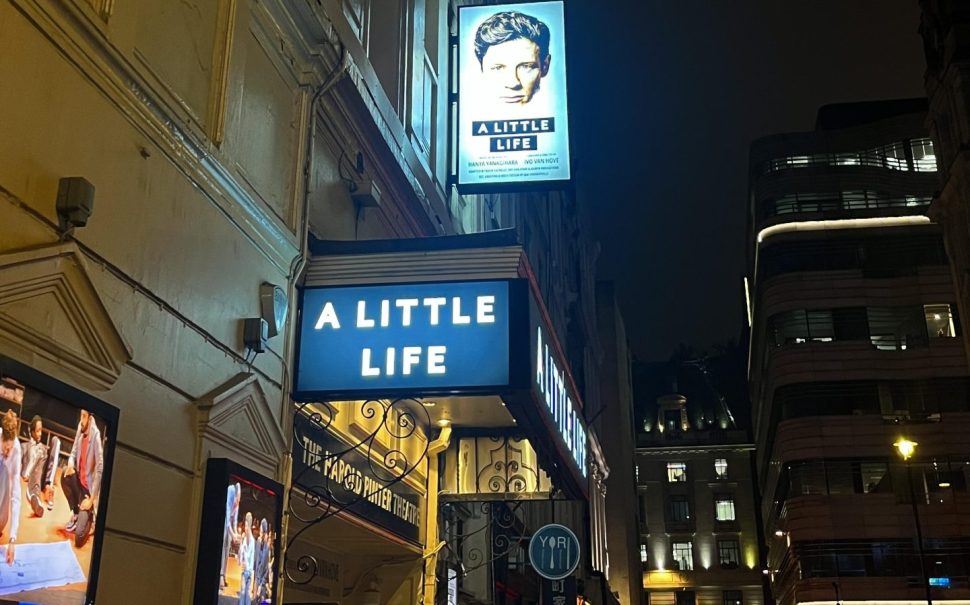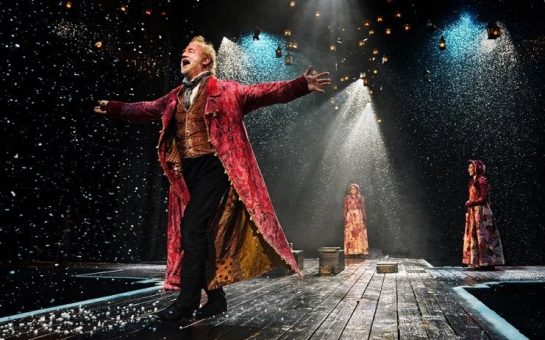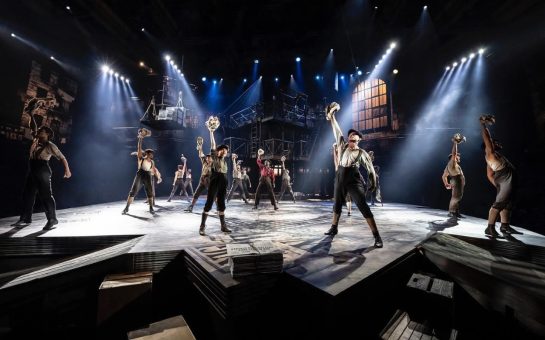Hanya Yanagihara’s novel A Little Life has divided readers since its publication in 2015 but when the stage adaptation came to London this year, I needed to see how the novel I loved would translate to the West End.
A Little Life has split readers into those who either love it or hate it passionately, albeit with a general consensus that it is incredibly bleak.
When you think things can’t get worse, they do, with exceptionally dark themes from sexual abuse and child prostitution to self-harm presented throughout.
The story follows four college friends in New York City: aspiring actor Willem, successful architect Malcolm, struggling artist JB, and brilliant lawyer Jude, although it becomes relatively clear early on that the life of Jude St. Francis is at the centre of the plot.
A Little Life is simultaneously one of the best yet most difficult books I’ve read.
I felt so many different emotions: from tears to relief, glimmers of happiness and hope, love and friendship, as well as pure desperation to see it through to the end.
Yanagihara’s prose is masterful and lyrical with such detailed character exploration that I didn’t want to stop reading.
Unsurprisingly it was nominated for the 2015 Booker Prize.
As for the stage production, since it opened in London’s West End in March, it has received mixed reviews.
It has been criticised as ‘trauma porn’ by some, and is certainly intense and at times exhausting to watch – the show runs for a lengthy time of three hours and 40 minutes (making a show out of 800 pages means a lengthy production) with a short interval.
Directed by Ivo van Hove, it stars James Norton (Jude), Luke Thompson (Willem), Omari Douglas (JB), and Zac Wyatt (Malcolm) alongside Zubin Varla (Harold), Emilio Doorsingh (Andy) and Nathalie Armin (Ana).
The whole cast offered phenomenal performances but of course Norton – an unexpected casting as Jude due to his racial ambiguity in the book – was particularly outstanding, capturing Jude’s childlike innocence and vulnerability excellently.
No doubt his emotionally and physically demanding performance every night will be award-worthy.
I had on-stage seating and highly recommend it, as completely immersed in the play, it feels as though you’re intruding on intimate moments.
I enjoyed being able to see all the intricate details that you might miss as part of the main audience, whether that’s the actor’s spit coming from their enunciation, noticing how Varla is actually cooking up a storm in the on-stage kitchen or that Douglas is really painting on canvas throughout the performance.
Seated on surprisingly comfy benches that have a back to them, you can see perfectly well from each row, with the actors utilising the stage like it’s 360 degrees.
The play has a clever structure as it combines Jude’s childhood and adult life as he attempts to process and talk about his trauma.
This is most significant when he enters a romantic relationship with Willem which is a relationship that for me, along with Harold adopting Jude, reinforces the light in this story.
Some of the scenes are incredibly distressing, particularly those containing rape and self-harm and if you can’t deal with seeing copious amounts of blood, this isn’t one for you.
Having known what to expect I felt prepared, although the gruesomeness of certain scenes felt as grimacing as when I read the book.
Thompson was beautiful to watch as Willem, whose character arc is perhaps my favourite.
He develops so subtly and delicately from being the cool actor friend (almost sounding like an American frat boy to begin with) and while it’s clear his love for Jude is apparent throughout, in the second half he is exceptionally warm, loving and safe.
I also enjoyed the integration of Ana, Jude’s social worker, throughout the show, who although has died, acts as an omniscient voice and guides him towards revealing his past.
I would have liked to see more of Douglas and his mighty stage presence, commanding attention effortlessly when he actually had dialogue, likewise with Wyatt, as both of their characters provide more of that essential light and laughter in the friendship between the four men.
The play couldn’t quite do justice to the strength of their friendship due to the amount of plot to get through, only offering a mere glimpse into lighter moments at parties or in Jude’s apartment.
The final monologue of the play is powerfully delivered by Varla with a solemn depiction of the heartbreak parents feel when they are unable to help or console their children.
As he finished, and before the whole audience gave a standing ovation, I’m left thinking that the heart of this story – Jude, with and despite the extensive trauma he suffered – lived to experience pure and genuine love in his adult life from his dear friends around him, bound together to try to help him heal.
A Little Life runs at the Harold Pinter Theatre until 18th June and you can still pick up tickets here.




